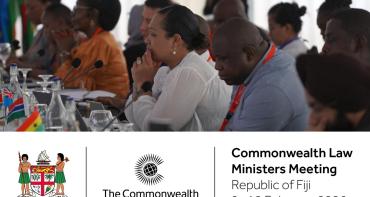A leading international academic on the prevention of violence says the Commonwealth is uniquely placed to take forward cross-sector policy interventions that could protect millions of lives.

A leading international academic on the prevention of violence says the Commonwealth is uniquely placed to take forward cross-sector policy interventions that could protect millions of lives.
Professor Mark Bellis, Director of Policy, Research and International Development for Public Health Wales was speaking at a roundtable discussion on preventing all forms of violence at Marlborough House in London.
At the meeting, he presented findings from research into interpersonal, collective and extreme violence ahead of the Commonwealth Health Ministers Meeting, which takes place on 21 May. Ministers will focus on the role of the health sector in preventing violence and creating stable societies.
In his address to High Commissioners and civil society representatives, Professor Bellis used a disease model to explain the pervasive and cyclical nature of violence: “Violence is infectious and easily transmitted between individuals and groups, as well as from one generation to the next, through exposure to violence. Activities to break these cycles are critical both to reducing violence and creating sustainable, healthier and economically viable communities,” he said.
“The Commonwealth covers a unique group of people in low, middle and high income countries and tackling violence at an international level requires the expertise that can be brought from all those different areas.”
In calling for a cross sectoral approach, Professor Bellis said a life course view of violence and the socio-economic conditions that promote it increasingly exposed common themes, such as poor quality childhoods, gender inequity, low life skill development and epidemic inequalities.
Professor Mark Bellis 2
A silo approach to violence prevention initiatives has resulted in the many different forms of violence being theoretically and empirically isolated, he said. “Our findings challenge these divides and identify both common causes and potential solutions that cut across multiple types of interpersonal, collective and extremism related violence.”
Commonwealth Secretary-General Patricia Scotland drew attention to a new Commonwealth initiative on Peace in the Home which will focus on ending domestic violence. “I believe we cannot have peace in the world unless we have peace in the home. Domestic violence in particular affects one in three women and is the greatest cause of morbidity for women and girls, according to the WHO,” she said.
“Although women and girls and are disproportionately affected by violence, it affects all of us and therefore we have got to think of things that we bring all sectors together, including local government, faith-based groups and civil society.”



